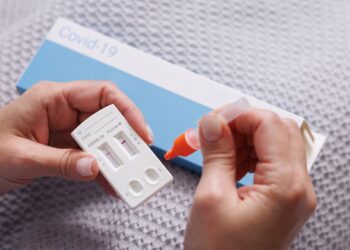Johns Hopkins researchers say they’re getting closer to developing a blood test that would identify changes in the brain associated with psychiatric and neurological disorders — an advancement that could enable doctors to detect the early signs of mental health emergencies.
In a study published last month in the peer-reviewed scientific journal Molecular Psychiatry, researchers focused on the potential of particles called extracellular vesicles to provide a window into what’s happening inside a person’s brain.
Extracellular vesicles are fatty sacs of genetic material that are released by every tissue in the body, including the brain.
Sarven Sabunciyan, an assistant professor of pediatrics at the Johns Hopkins School of Medicine and the paper’s senior author, compared them to rafts that travel between cells. They sometimes carry messenger RNA — a type of molecule also called mRNA that contains the instructions for how cells should make proteins.
“It’s basically a way of cells communicating,” he said.
The study, led by the Johns Hopkins Children’s Center, was inspired by a previous study by Johns Hopkins researchers, Johns Hopkins Medicine said in a news release Thursday. That study found that communication between cells is altered in pregnant women who go on to develop postpartum depression after they give birth.
In the new study, scientists first proved that mRNA from specific tissues are found in extracellular vesicles circulating in the blood. Then, using lab-grown human brain tissue derived from stem cells, scientists found that mRNA in extracellular vesicles released from brain tissues reflected mRNA changes happening inside those tissues.
According to the researchers, that means it is possible to gather biological information from hard-to-access tissues — like the placenta or the brain — by examining mRNA inside of extracellular vesicles circulating in the blood.
The study’s results suggest that mRNA in extracellular…
Read the full article here







